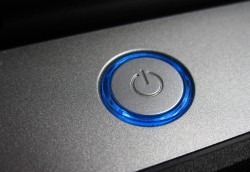The FightAids@Home" project" supports HIV research by distributing extensive computing tasks to private PCs. In this way, everyone can contribute to the development of new drugs

The blue pages have become an integral part of the lives of many gay men - but they are a real challenge for the computer. A little bit of watching and chatting is not enough to keep a processor busy in 2010. So what could be better than letting the PC do a few useful tasks on the side?
For example, it could help to invent new drugs against HIV. "FightAids@Home" is the name of a project in which scientists use computers in private homes for complex calculations. Independent research institutions often do not have the necessary capacity for their projects. The solution: the gigantic computing tasks are simply carried out jointly by as many computers as possible. This is known as "distributed computing".
Any PC owner with Internet access can take part. Anyone who downloads the necessary software and registers will receive regular data packets from "FightAids@Home" on their home computer. The computer processes these whenever the processor is not particularly busy - so no other processes are slowed down. Once the calculations are complete, the data packet is automatically replaced with a new one.
100,000 private computers are already being used for HIV research in this way. By joining forces, they achieve enormous computing power that even expensive supercomputers can only manage with difficulty. In return, "FightAids@Home" guarantees that only non-profit, company-independent research work is carried out on the participating PCs. On the network's website, everyone can keep up to date with what is currently being researched. And don't worry: "FightAids@Home" does not access private data, but only transmits its own data packets. If the Internet connection is disconnected or the computer is switched off, the calculation software is also suspended.

The project was launched in 2002 by the US research institutes Olson Laboratory and Scripps Research Institute and has been part of the World Community Grid, a network of distributed computing networks supported by IBM, since 2005. The main purpose of these networks is to simulate the attachment of active substances to viruses on the computer. Based on the possible combinations simulated, the researchers preselect molecules that may be suitable for medication because they can bind to certain components of the HIV virus. This means that the scientists no longer have to test each molecule experimentally in the laboratory. This saves time and money.
A current maths problem at "FightAids@Home": The aim is to find a site in the DNA of two mutated HIV viruses where a specific drug, known as an integrase inhibitor, could have an effect. To do this, the virus data is compared with the molecular database of the US National Cancer Institute. 315,000 substances need to be analysed while the PC owner can concentrate on the approximately 356,000 users who are currently registered with Gayromeo in Germany.
Fight Aids at Home









